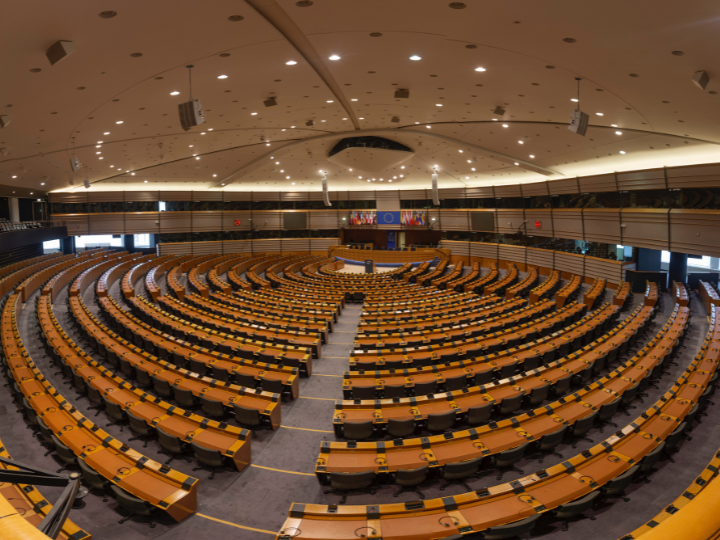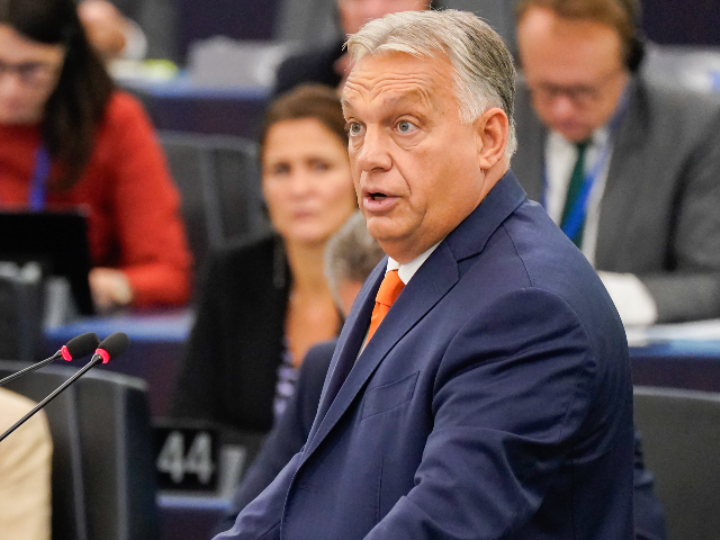by Vasiliki Angouridi
Despite President Trump’s short pause on higher-rate tariff announcements, now scheduled for 1 August, Greek MEPs from across the chamber are warning of the potential impact on patients and transatlantic supply chains. They are calling for a coordinated EU response.
European Union officials have signalled a willingness to consider a US proposal for a uniform 10 per cent tariff on a broad range of exports. However, Brussels is seeking carve-outs from existing or proposed sector-specific levies, particularly those targeting pharmaceuticals, alcoholic beverages, semiconductors and commercial aircraft, reports Bloomberg.
Dimitrios Tsiodras, an MEP of the New Democracy ruling party (EPP), and Nikos Papandreou, a PASOK MEP (S&D) and member of the SANT committee, both argue that imposing tariffs on medicines would have serious consequences for patient access and public health.
They emphasise the need for a clear and principled EU response to prevent long-term damage.
Threat to supply and patients’ access
Tsiodras told Euractiv, “[...] we now need a mutually beneficial trade deal,” adding that the Commission should communicate clearly to the U.S. administration that, due to the high level of interdependence in this sector, imposing tariffs could seriously disrupt supply chains and lead to medicine shortages.
For Papandreou, public health must take precedence over trade disputes.
“Our response should reflect both our values and our commitment to resilient, patient-centred healthcare systems,” he told Euractiv, calling tariffs on medicines "an attack on public health," which must be unequivocally rejected.
“These measures pose a direct threat to patients’ access to essential treatments and risk undermining the transatlantic pharmaceutical supply chain,” he warned.
According to Papandreou, all medical technologies should be exempt from any such protectionist measures as they are not just products; "they are vital instruments of care that patients depend on every day.”
Call to the Commission
Tsiodras said the Commission should press for pharmaceutical products to be exempt from any tariffs to ensure the availability of medicines for Greek and European patients.
“Alongside the social and health implications, we must also consider that we want an agreement that ensures the viability of the pharmaceutical sector, which, as the second-largest export sector, makes a crucial contribution to the European economy,” he stressed.
Papandreou argued that open and rules-based trade should be defended, while strengthening Europe’s capacity to innovate and produce strategically important medicines.
“To that effect, I have already lent my support to the cross-party letter addressed to the European Commission, urging a firm and principled response to the U.S. administration’s proposed tariffs on medicines,” he explained.
Despite President Trump’s short pause on higher-rate tariff announcements, now scheduled for 1 August, Greek MEPs from across the chamber are warning of the potential impact on patients and transatlantic supply chains. They are calling for a coordinated EU response.
European Union officials have signalled a willingness to consider a US proposal for a uniform 10 per cent tariff on a broad range of exports. However, Brussels is seeking carve-outs from existing or proposed sector-specific levies, particularly those targeting pharmaceuticals, alcoholic beverages, semiconductors and commercial aircraft, reports Bloomberg.
Dimitrios Tsiodras, an MEP of the New Democracy ruling party (EPP), and Nikos Papandreou, a PASOK MEP (S&D) and member of the SANT committee, both argue that imposing tariffs on medicines would have serious consequences for patient access and public health.
They emphasise the need for a clear and principled EU response to prevent long-term damage.
Threat to supply and patients’ access
Tsiodras told Euractiv, “[...] we now need a mutually beneficial trade deal,” adding that the Commission should communicate clearly to the U.S. administration that, due to the high level of interdependence in this sector, imposing tariffs could seriously disrupt supply chains and lead to medicine shortages
For Papandreou, public health must take precedence over trade disputes.
“Our response should reflect both our values and our commitment to resilient, patient-centred healthcare systems,” he told Euractiv, calling tariffs on medicines "an attack on public health," which must be unequivocally rejected.
“These measures pose a direct threat to patients’ access to essential treatments and risk undermining the transatlantic pharmaceutical supply chain,” he warned.
According to Papandreou, all medical technologies should be exempt from any such protectionist measures as they are not just products; "they are vital instruments of care that patients depend on every day.”
Call to the Commission
Tsiodras said the Commission should press for pharmaceutical products to be exempt from any tariffs to ensure the availability of medicines for Greek and European patients.
“Alongside the social and health implications, we must also consider that we want an agreement that ensures the viability of the pharmaceutical sector, which, as the second-largest export sector, makes a crucial contribution to the European economy,” he stressed.
Papandreou argued that open and rules-based trade should be defended, while strengthening Europe’s capacity to innovate and produce strategically important medicines.
“To that effect, I have already lent my support to the cross-party letter addressed to the European Commission, urging a firm and principled response to the U.S. administration’s proposed tariffs on medicines,” he explained.
*first published in EURACTIV.com




 By: N. Peter Kramer
By: N. Peter Kramer
